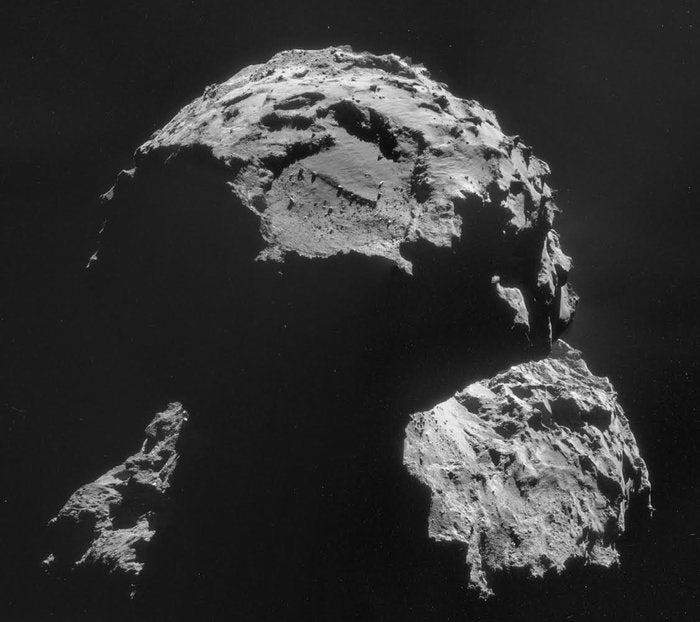Philae lander successfully launches from Rosetta orbiter and is on its way to the comet's surface
The lander is scheduled to arrive at the Agilkia landing site (above) at around 15.30pm GMT - with the signals taking another 28 minutes to travel to Earth

After a nerve-wracking last-minute glitch in its power systems, the Philae lander has now successfully detached from the Rosetta spacecraft and is now wending its way slowly to the comet 67P Churyumov-Gerasimenko.
The fridge-sized lander is expected to touch down on the comet’s icy surface around 15.30GMT with a half hour delay before its signals reach mission control at the European Space Agency (ESA). If successful it will be the first ever soft landing on a comet in history – an achievement compared to throwing a hammer from London that hits the head of a nail in Delhi.
Once attached to the two-mile-long comet’s surface with a pair of explosive harpoons, Philae will begin to take samples from the comet, baking them in an internal oven to analyse the chemicals and organic material present.
From this and other observations scientists hope to find out more about the history of the Solar System, and perhaps even the origins of life on Earth. Comets are rich in chemicals including carbon, nitrogen and oxygen as well as complex organic molecules and it’s long been theorised that these icy wanderers are responsible for distributing life throughout the Universe.
Landing on the comet is still a challenge however - far more difficult than landing on the Moon - and Rosetta has travelled a long way to catch up with the 67P/C-G, a cumulative distance of more than 6.4 billion kilometres.
"Nobody knows what’s going to happen. It is supposed to be a soft landing but the Philae lander will have to take the impact on its legs, there are no rocket thrusters involved,” said Dr Rosemary Young, a programme manager on Rosetta at the UK Space Agency.
“One of its problems will be to stay down. The comet’s gravity is just one hundred thousandth of that on Earth, and if it lands on a slope greater than 45 degrees it will just fall over,” she said.
Click HERE to view full-size version of graphic
Join our commenting forum
Join thought-provoking conversations, follow other Independent readers and see their replies
Comments
Bookmark popover
Removed from bookmarks